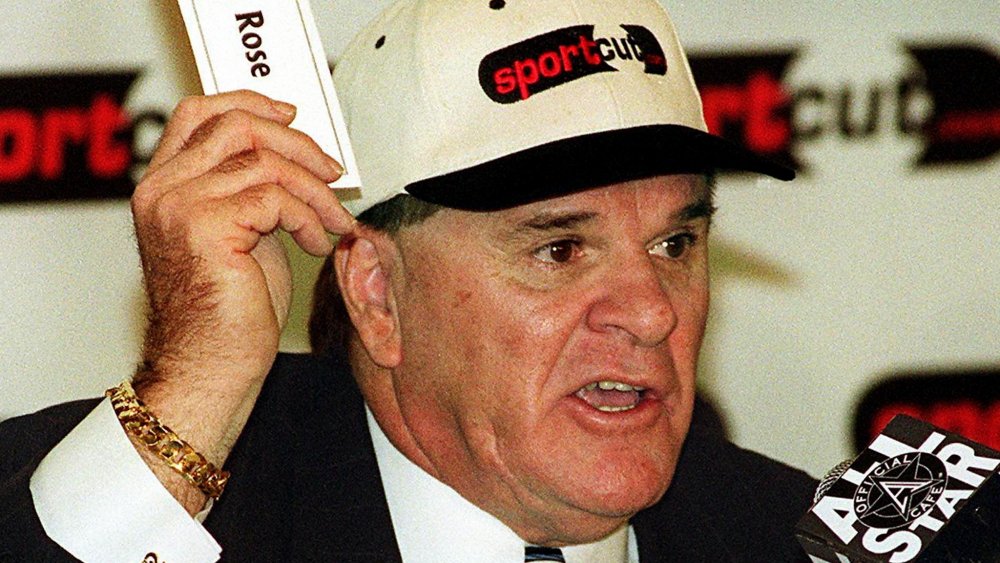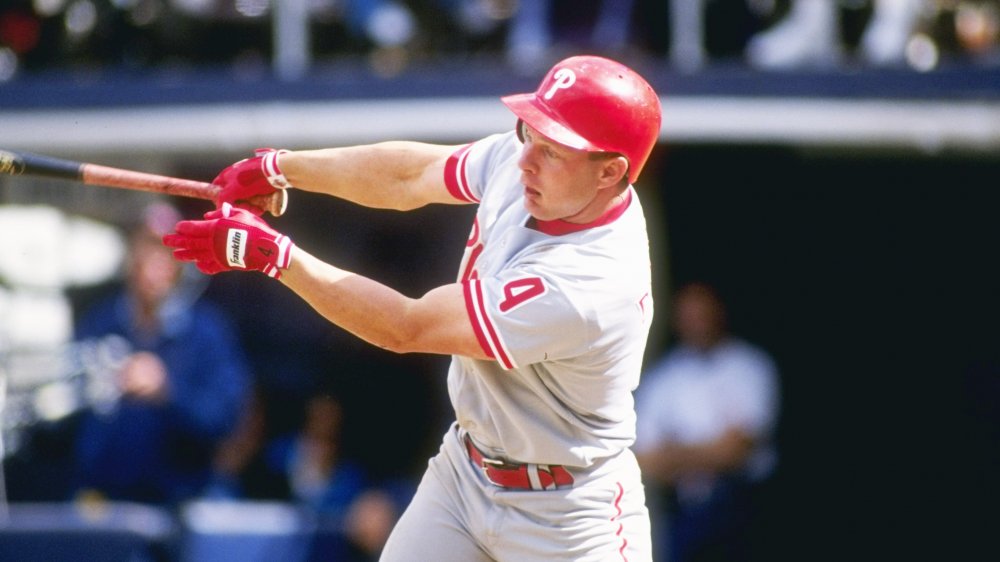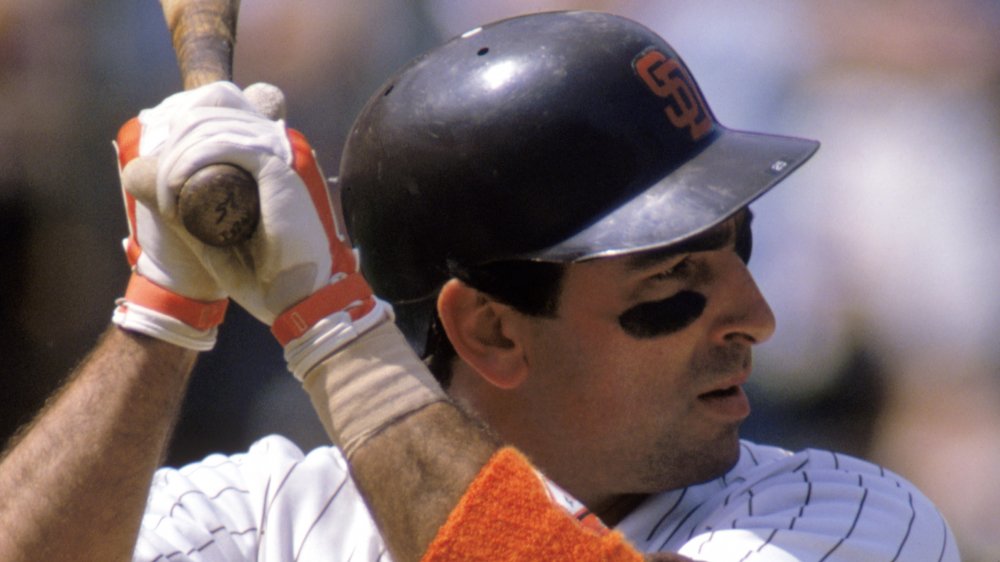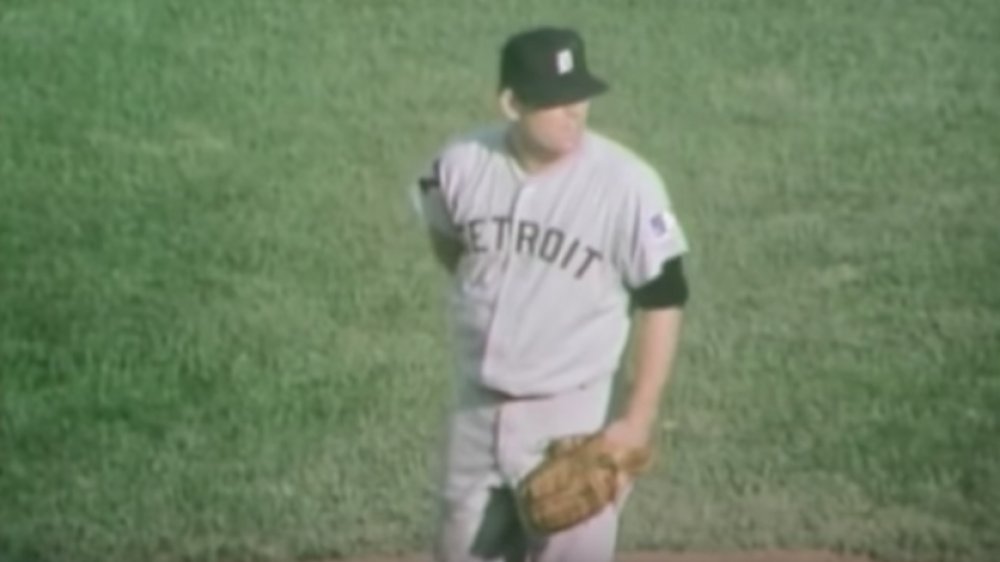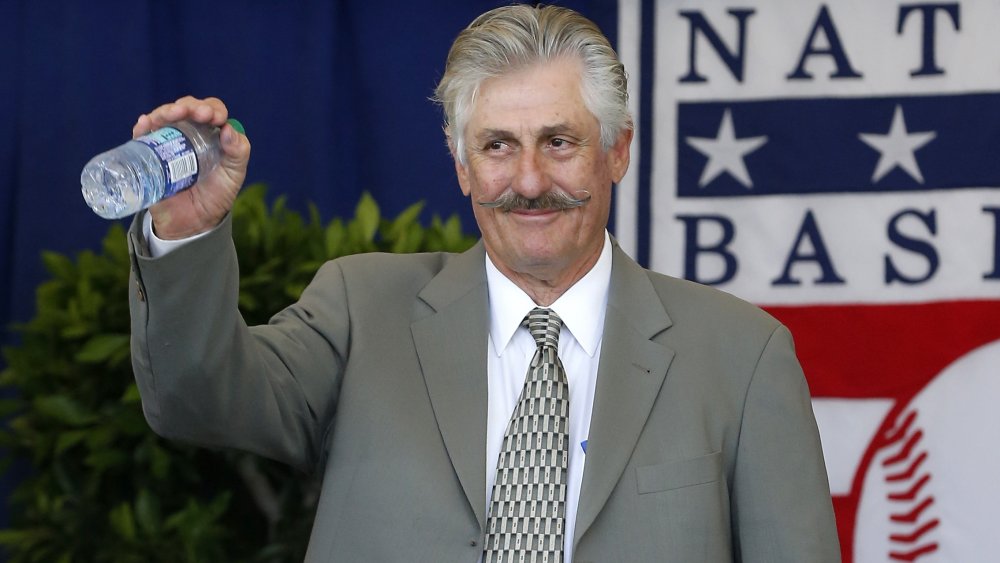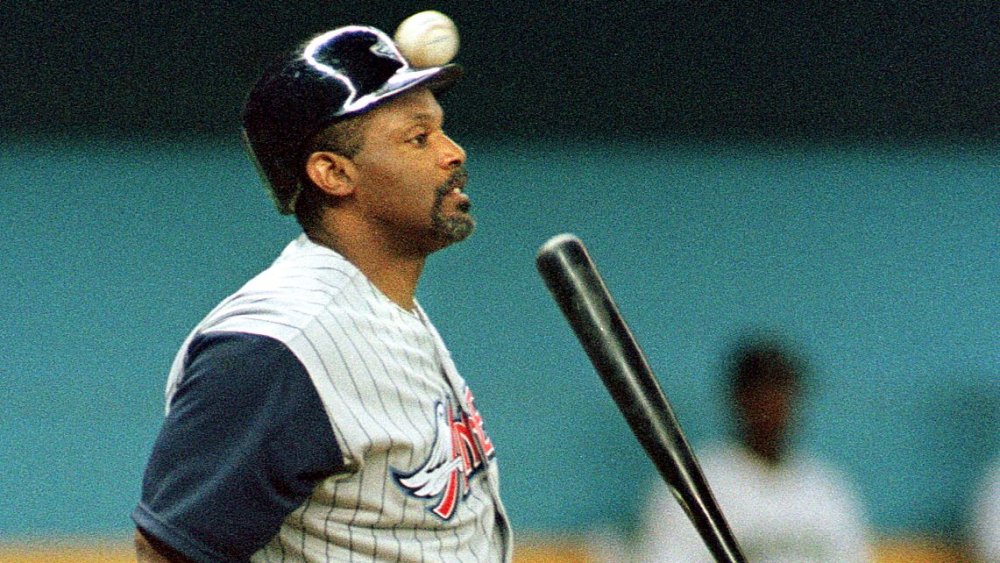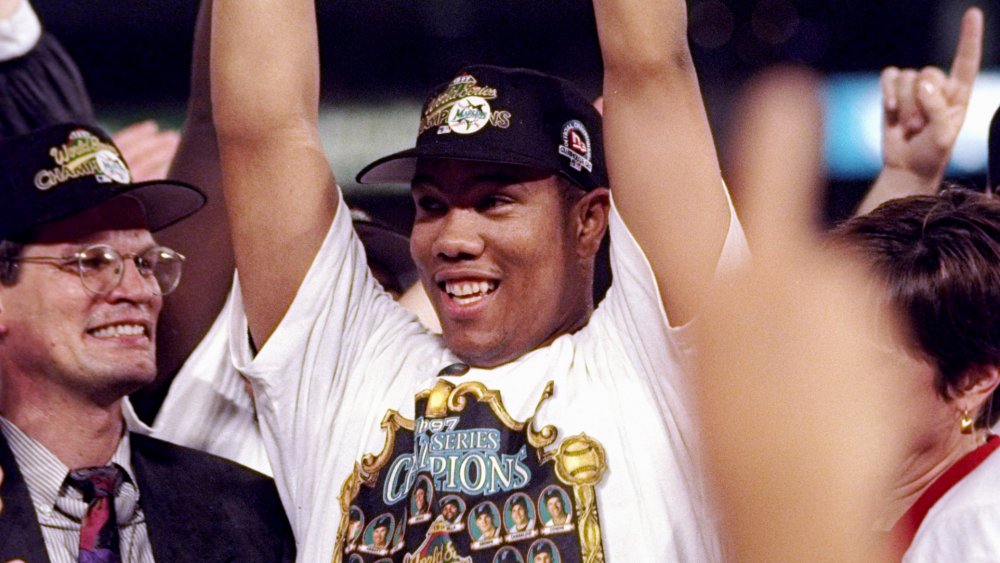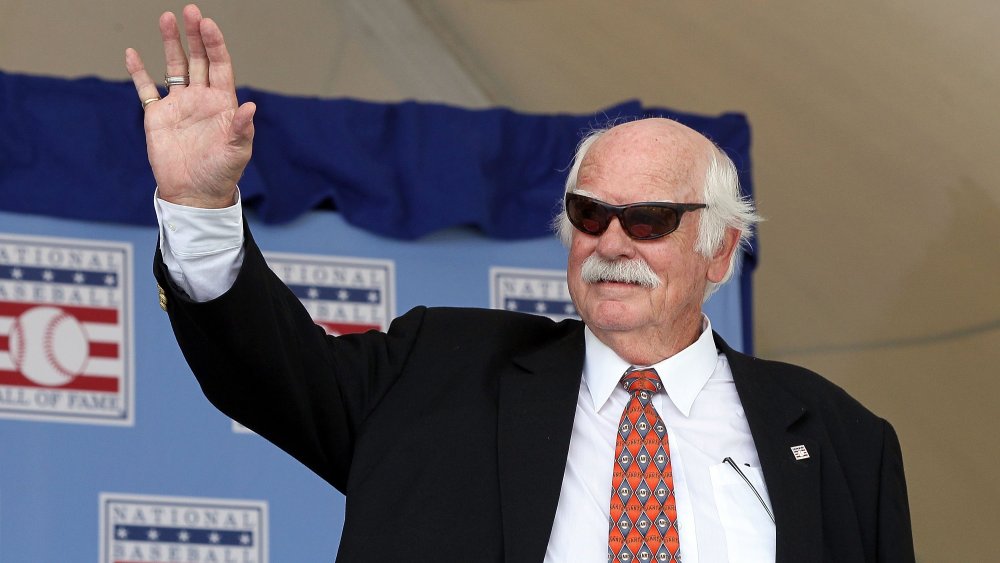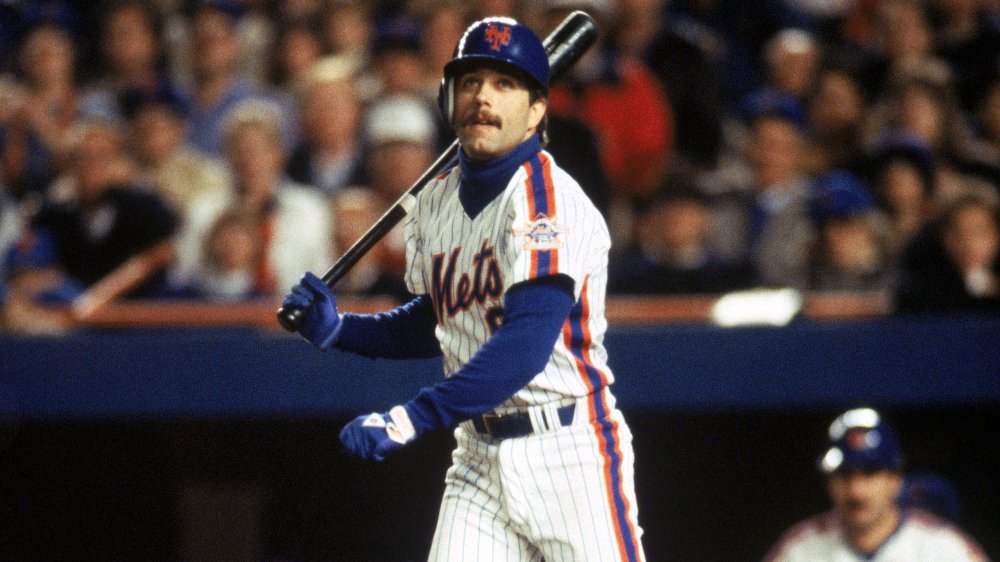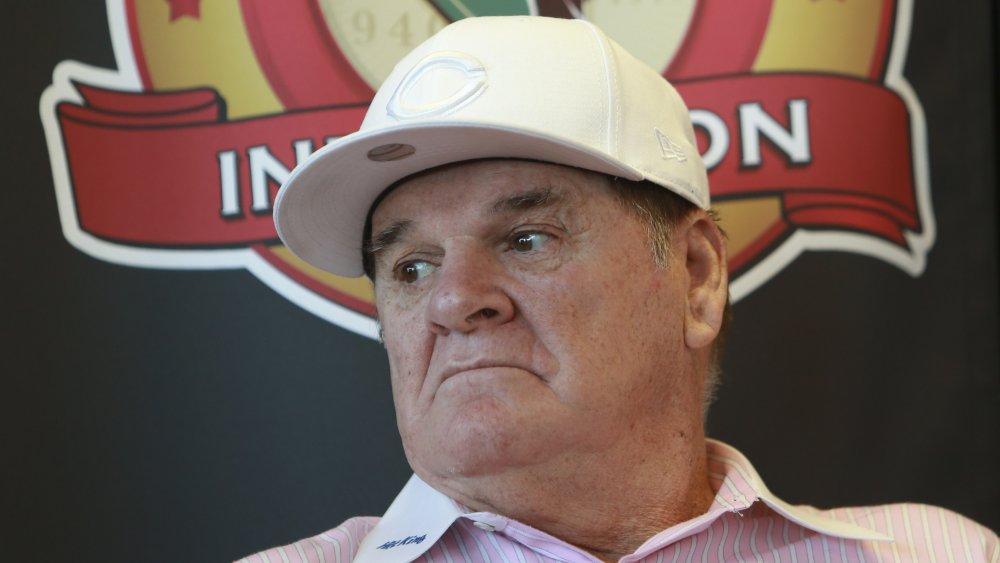Former Baseball Stars Who Are Surprisingly Poor
Handfuls of Major League Baseball players have not escaped financial perils that affected stars from other sports leagues across generations. A piece penned for Sports Illustrated by Pablo S. Torre in 2009 documented how and why athletes who make seven figures, if not more, during their careers lose millions of dollars, declare bankruptcy, and, in some extreme cases, become surprisingly poor en route to taking jobs during what should be their retirements. Even in the early 2020s when many baseball contracts include large sums of guaranteed money regardless of play or injury setbacks, a player could still be only a couple of poor decisions away from losing the bulk of a fortune.
Contrary to popular belief, not every former baseball starter and star who found themselves facing financial hardships blew through money because they desired to own the finest vehicles, largest houses, and pieces of overpriced jewelry. Some battled personal demons that were made all the worse because of money. Others were introduced to the wrong people, or trusted friends who ended up screwing them over.
"A fool and his money are soon parted," teaches the famous saying. As harsh as that statement is, it's often been true for those who, as Business Insider contributor Steve Finley once wrote, "won baseball's version of the lottery."
Lenny Dykstra couldn't keep himself out of trouble following retirement
Younger readers who aren't fans of the Philadelphia Phillies or New York Mets may know Lenny Dykstra more for his post-career exploits than for anything that he achieved on baseball diamonds. From 1985 through 1996, the three-time All-Star who was part of the 1986 Mets squad that beat the Boston Red Sox in the World Series, spent 12 seasons in the Big Leagues, and he went to become, as CNN described it, "a successful self-taught investor."
But the public eventually learned such successes allegedly weren't on the level. In March 2009, GQ published a piece written by photographer and photo editor Kevin Coughlin in which he accused Dykstra of credit card fraud and bouncing checks, among other things. That summer, Dykstra filed for bankruptcy.
Dykstra earned two different prison sentences in 2012. Per Reuters, he received three years behind bars following a no contest plea to grand theft auto charges. As reported by CNN, he was given 6.5 months in federal custody in December of that same year after he pled guilty to bankruptcy fraud, concealment of assets, and money laundering. The once-beloved baseball figure failed to avoid trouble after his release from prison. According to the Associated Press, he was indicted on multiple charges in 2018 regarding an incident with an Uber driver. While he was cleared in March 2019, he told NJ.com that case cost him "millions of dollars" because of a canceled deal with Amazon that included a reality-television show.
Jack Clark twice filed for bankruptcy
Jack Clark, affectionately known as "Jack the Ripper" during his MLB career, made four All-Star squads, earned a pair of Silver Slugger awards, and smashed 340 home runs. While never a legitimate Hall of Fame candidate, Clark's stint in professional baseball lasted from 1975 through 1992. He should have been financially set for life.
He also had an affinity for luxury sports cars — 18 of them, to be exact, per The Dallas Morning News (h/t The Seattle Times). Clark also owned a California home worth over $2 million when he filed for bankruptcy in 1992. At that time, he owed over $400,000 in back income taxes and had massive amounts of credit card debt. While Clark eventually got back on his feet, he and his wife filed for bankruptcy protection in 2018. According to USA Today, they owed over $550,000 while earning a combined $120,000 per year at the time.
In the summer of 2013, Clark lost a gig with St. Louis radio station WGNU 920 AM when, as mentioned by ESPN, he accused former St. Louis Cardinals slugger Albert Pujols of using performance-enhancing drugs. Pujols threatened a lawsuit but dropped the matter after Clark issued a public retraction, per the St. Louis Dispatch.
Financial problems aren't all that plagued Denny McLain
Seven years into Denny McLain's career, one would not have been blamed for assuming the right-handed pitcher was on his way to the Hall of Fame. By the end of the 1969 MLB season, McLain was a two-time reigning Cy Young Award winner, the Most Valuable Player for the '68 campaign, and a World Series champion.
As noted by Baseball Prospectus, the downfall of McLain's career started in February 1970 when Sports Illustrated reported on the pitcher's off-the-field bookmaking activities. Ever since the infamous Chicago Black Sox of 1919, baseball players getting involved with gamblers was a strict no-no, and MLB commissioner Bowie Kuhn suspended the pitcher prior to spring training. McLain remained banned through the end of June 1970.
McLain never again posted a winning record, and he filed for bankruptcy during the '70 campaign, per ESPN. He last appeared in a game in 1972. Following his career, he served multiple jail sentences, and a meat-processing company he and business partners purchased in 1994 went broke two years later. According to The Times-Picayune, McLain was arrested in September 2011 after he was accused of not paying off a debt. Those charges were dropped a month later.
Scott Eyre was a victim of a Ponzi scheme
Scott Eyre was never the type of dominant relief pitcher similar to the likes of Mariano Rivera, but he was good enough to remain in the Big Leagues from 1997 through 2009. He made over 600 career appearances and was part of the Philadelphia Phillies team that won the World Series in 2008.
Just a few months after celebrating that title as part of the team's championship parade, Eyre found himself desperately in need of cash. In February 2009, ESPN's Jason Stark reported Eyre was a victim of the Ponzi scheme allegedly perpetrated by the Stanford Financial Group. Per Stark's story, the SEC froze all of Eyre's assets at that time "except for one bank account with $3,000 in it."
As AOL.com mentioned that same month, Eyre spoke with MLB.com about the matter. "I'm broke right now. I have no money. I have $13 in my wallet," the reliever said. Fortunately for Eyre, the Phillies offered him an advance on his 2009 salary to help, but that was his last season to recover money lost as a pro athlete. Eyre retired in 2010. After he called time on his playing days, he went into coaching.
Poor investments cost Rollie Fingers a fortune
As the Baseball Hall of Fame eloquently puts it, Rollie Fingers is widely remembered for having the most famous facial hair in MLB history, but he was much more than just a man with a tremendous mustache. One of the most accomplished pitchers of the 1970s and early 1980s, Fingers was a seven-time All-Star who won three World Series rings, a World Series MVP trophy, a Cy Young Award, and an MVP title. He was named the league's top relief pitcher (Rolaids Relief Man Award) on four occasions. Per the Baseball Hall, Fingers was the first player to ever record 300 career saves. He played professionally from 1968 through 1985.
As the Ft. Lauderdale News & Sun-Sentinel (h/t Chicago Tribune) reported, however, Fingers was "broke" by Christmas 1989, the year he was forced to file for bankruptcy. Per that story, Fingers invested in fixing and selling old houses, he spent six-figures on Egyptian Arabian horses, and he lost cash on wind turbines. At the time, Fingers' wife estimated he'd lost well over $4 million. He was forced to play in an MLB Senior League at the end of the decade because he needed money.
According to The Columbus Dispatch, a matter involving Fingers allegedly owing over $1 million in income taxes was resolved in the summer of 2007.
Gambling allegedly cost Cecil Fielder more than just money
Through the second half of the 1980s and much of the 1990s, Cecil Fielder was a feared home run hitter who crushed a career 319 bombs during his MLB career. Some may recognize his last name because he's the father of Prince Fielder, who played in the Bigs from 2005 through 2016. Ironically, Prince also hit exactly 319 MLB homers. According to Sporting News, Cecil and Prince made history as the first father-son duo to reach the 50-home run milestone in a single season and the first such duo to belt 300 career homers separately.
In 2004, Fred Girard of The Detroit News (h/t The Salt Lake Tribune) released a damning report on Cecil's post-baseball life. Fieder Sr. allegedly lost much, if not all, of his fortune largely due to gambling, and he reportedly owed nearly $2 million, total, in debts at the time Girard's story went public. As explained by MLive.com in 2012, Fielder eventually sued Girard and the newspaper for libel, slander, and defamation. That lawsuit and an appeal were dismissed.
Stacey August, Prince's mother, told MLive about how Cecil's reported gambling addiction led to her opening a credit union "that provides financial management resources to athletes and their families." While Cecil's actions caused understandable issues between him and Prince, the two had reconciled by the conclusion of the 2010s, per The Big Lead.
Livan Hernandez owned a shady post-retirement persona
Liván Hernández, the half-brother of Orlando "El Duque" Hernández, pitched in MLB from 1996 through 2012. His official rookie season started in 1997, however, and he proved an invaluable part of the Florida Marlins squad that fall when he won both National League Championship Series and World Series MVP honors. The two-time All-Star never again earned a ring, but he appeared in over 500 games across 17 years. Baseball Reference estimates Hernández earned over $53 million from just his MLB contracts.
Somehow it all went. In July 2017, the Miami Herald confirmed the existence of court papers that showed Hernández had filed for bankruptcy. According to the story, the former pitcher owed "up to $1 million to as many as 50 creditors" such as multiple credit card companies. Hernández also owed money in back taxes and over $200,000 to a local businessman who lent him money.
As the Miami Herald updated in April 2018, though, a federal judge ultimately rejected Hernández's bankruptcy claim after the pitcher failed to properly submit the necessary paperwork. Around that same time, Hernández reportedly said that he had no checking account or bank account, that the car he drove was borrowed from a friend, and that he made a living as a pitching tutor via "an all-cash business."
Curt Schilling reportedly blew through $50 million
Many readers out there may fail to shed a tear for former pitcher Curt Schilling, and not just because he accumulated over $100 million in earnings from his MLB contracts, according to Baseball Reference. Schilling's greatness on the hill cannot be denied even by those who didn't cheer on his employers during the 1990s and 2000s. The six-time All-Star was part of three championship squads, including the 2001 Arizona Diamondbacks team that defeated the New York Yankees (Schilling earned the World Series MVP trophy that November), and the Boston Red Sox club that erased a 3-0 American League Championship deficit to the Yankees en route to winning it all.
Following Schilling's retirement, he became embroiled in multiple controversies. As reported by ABC News, Schilling told Boston radio station WEEI-FM in 2012 that he lost more than $50 million on an investment in failed video game company 38 Studios. "The money that I had earned and saved in baseball was all gone," he said at the time.
That's only part of the story. Per Sports Illustrated, ESPN fired Schilling, who became a passionate supporter of Donald Trump, in 2016 after he repeatedly shared offensive posts on social media. In August 2019, Dan Adler of Vanity Fair suggested Schilling's public entrance into the world of politics could have been "an effort to drum up publicity for some new phase of his career, especially given that video game misadventure."
Farming didn't work out for Gaylord Perry
At the start of the 2020s, a modern Major League pitcher openly admitting to cheating throughout his career via a book such as Gaylord Perry's 1974 tome Me and the Spitter: An Autobiographical Confession would not have been well received by diehard baseball supporters or casual sports fans. But times were different for much of Perry's career that lasted from 1962 through 1983. The Hall of Famer won the Cy Young in 1972 and 1978, and he was a five-time All-Star.
According to UPI Archives, Perry and his wife filed for bankruptcy roughly three years after he last pitched in an MLB game. According to that story, farming setbacks led to the couple owing over $1 million in debts. While he lost his farm, he was willing to admit defeat when he spoke to the New York Times (h/t Chicago Tribune) for a piece published in 1989. "I decided to leave it before they took it away from me," he said.
In 1987, Perry's wife, Blanche, lost her life in an automobile accident in Florida. Prior to that tragedy, the two were married for 28 years. No criminal charges were filed, but the Perry family eventually settled a civil suit. According to the Times, the family received $1 million.
Wally Backman cost himself multiple post-playing opportunities
Those who listened to New York sports talk radio station WFAN throughout the 2000s and 2010s likely heard multiple callers suggest on the air that Wally Backman deserved an opportunity to manage the New York Mets. Backman was never an All-Star with the Amazins, but he did hit .320 during the 1986 season. That fall, the Mets rallied from behind several times to defeat the Boston Red Sox in the 1986 World Series.
Backman, who played from 1980 through 1993, began the 2000s with a promising managerial career in front of him. The Arizona Diamondbacks hired him as the club's manager following the 2004 regular season, but the team fired him only four days after he was introduced to reporters. As explained by ESPN, Arizona only learned after Backman put pen to paper on a contract that he had previously been arrested twice and had also declared bankruptcy. According to USA Today, when he filed for bankruptcy in 2003, he owed money to more than 20 creditors and the IRS. He said his ex-wife had managed his finances over the years and was responsible for his financial downfall.
In August 2019, Backman was arrested on domestic violence charges. According to the New York Post, that was at least the third time a partner accused him of physical abuse. In January 2020, he was cleared of those charges.
Rick Wise apparently trusted the wrong agent
Rick Wise is a former pitcher who is largely known among baseball fans for two appearances. As mentioned by Fox Sports, he pitched a no-hitter and also hit a pair of home runs while featuring for the Philadelphia Phillies during a contest played on June 23, 1971. Wise also earned the win for the Boston Red Sox in the legendary Game 6 of the 1975 World Series that ended when Carlton Fisk "willed" his home run ball to remain fair. Wise was hardly a two-game wonder, though. Between 1964 and 1982, he appeared in over 500 career outings, and he tallied a 188-181 record.
According to UPI Archives, Wise filed for bankruptcy in 1990, reportedly owing over $1.4 million in debts, most of which was back taxes the IRS was looking to collect. In August 1991, the Hartford Courant reported Wise's trust in agent LaRue Harcourt cost the pitcher $3 million. Harcourt's investments in airplanes never netted his clients their promised fortunes, and he never put money into a pension for Wise.
Per the Society for American Baseball Research, Wise spent much of his post-playing life coaching in the sport he loved before he retired, for good, after the 2008 season.
Pete Rose and gambling weren't an ideal pairing
Pete Rose is unquestionably one of the most controversial baseball figures of the 1980s, 1990s, and first two decades of the 2000s. The man who holds the MLB all-time hits record (4,256) that likely won't ever be approached by any other player, barring a drastic change of league rules, accepted a lifetime ban from the sport in August 1989 after he was accused of gambling on baseball while he was manager of the Cincinnati Reds. Rose denied wagering on games for over a decade before he came clean in 2004.
In 2007, Rose told ESPN's Dan Patrick and Keith Olbermann, "I bet on my team every night" as a manager. As of March 2020, Rose remained ineligible for the Hall of Fame.
Rose first found himself in serious financial trouble in 1990 when he was sentenced to five months in prison for federal income tax evasion, as noted by ESPN. 18 years later, TMZ Sports reported on divorce documents filed by his estranged wife. According to the story, Rose was earning roughly $1.2 million per year at that time but was also blowing "most of his cash in high stakes gambling sessions and has significant debts with casinos and the IRS." Court documents obtained by TMZ in September 2018 claimed Rose was dealing with "great debts," significant health setbacks, and growing attorney's fees at that time.
